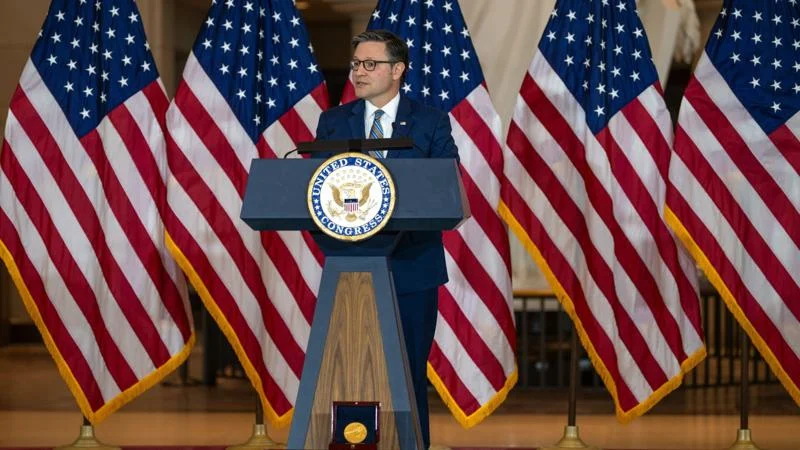An unconventional accounting method could provide Senate Republicans with a ticket out of the One Big Beautiful Bill Act’s debt and deficit problems, according to a new fiscal analysis.
The OBBBA – a massive budget reconciliation bill implementing the president’s tax, energy, border, and defense policies – could increase federal deficits by $2.4 to $4.5 trillion over the next decade, according to most budget experts.
The House-passed bill could cost $2.4 trillion due to its ten-year extension of the 2017 Tax Cuts and Jobs Act, despite House committees including over $1.5 trillion in offsets. But Senate committees majorly revised the OBBBA, which is currently under review by the Senate parliamentarian, by permanently extending the tax cuts.
The price tags result from assuming that tax cuts equate to lost federal revenue, an accounting method known as the current law baseline. This scoring method has always been used for budget reconciliation bills and is what the House bill operated under.
If scoring the bill under this baseline, the Senate’s tax permanence plan would cost $4.5 trillion over the next ten years alone, a fiscally unacceptable number. So Republican Senate leaders will ask the Senate parliamentarian Monday whether they can use a different scoring method, known as the current policy baseline, to essentially paper over the bill’s estimated cost.
Current policy baseline treats tax cut extension as a continuation of current law rather than new policy, thus assuming that continuing the expiring tax cuts will cost nothing.
“Extending the Trump tax cuts prevents a $4 trillion tax increase — this is not a change in current tax policy or tax revenue,” Senate Finance Committee Chairman Mike Crapo, R-Idaho, said in a statement. “This score more accurately reflects reality by measuring the effects of tax policy changes relative to the status quo.”
If Republicans obtain permission from the parliamentarian, they could drastically reduce the OBBBA’s total cost, according to a new analysis by the Joint Committee on Taxation.
Under the current policy baseline, the Senate-revised OBBBA would add roughly $441 billion to the federal deficit, after accounting for the bill’s offsets and projected economic growth.
Even if Senate leaders receive the green light, Crapo and Senate Majority Leader John Thune, R-S.D., will have to fight hard to win over enough Republican votes to pass the bill. Budget reconciliation rules allow the bill to pass the upper chamber with only a majority vote, but fiscal hawks remain unconvinced of the current policy baseline’s legitimacy.
Thune wants the finalized OBBBA package on the floor by Wednesday so that the House has time to approve the changes by a self-imposed July 4 deadline.
That deadline appears increasingly unrealistic because even if the legislation passes the Senate, a substantial number of House Republicans have objections to additional Senate changes, many of which axed delicate compromises House Speaker Mike Johnson, R-La., made with key holdouts.






